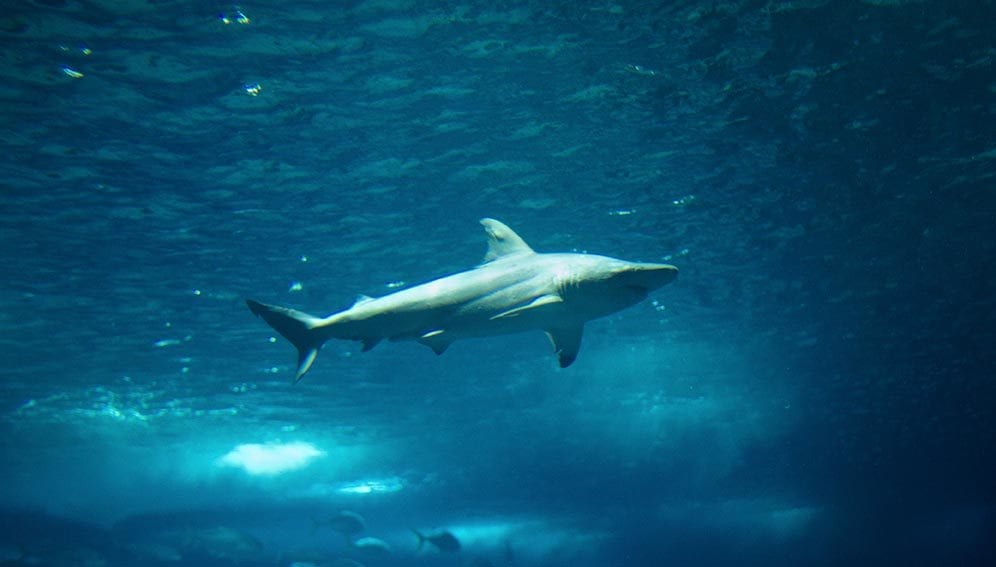Send to a friend
The details you provide on this page will not be used to send unsolicited email, and will not be sold to a 3rd party. See privacy policy.
This is important because sharks are top predators that keep the marine ecosystem in check, helping to sustain the food web that supports millions of people worldwide who rely on seafood sustenance.
Although shark fishing is banned in Brazil, the clandestine market continues, driven partly by the high prices shark fins fetch: up to US$1,000 per kilogram on the international market.
Fishermen engaged in illegal fishing of sharks usually resort to finning: cutting off the caught sharks’ fins and throwing the sharks back into the water, where they die in agony.
Until now, it has been hard to tell whether the fins come from protected sharks, as they might look quite similar when severed.
In a study published in Fisheries Research, researchers used DNA barcoding, a genetic tool able to analyses short segments of about 650 base pairs of the mitochondrial genome, for distinguishing different species of sharks.
To test the method, Brazilian researchers analysed 85 shark carcasses gathered between 2015 and 2016 from fishing boats and regional fish distribution markets throughout the São Paulo coastline.
They extracted DNA from these samples and compared it with sequences available in the Barcode of Life Online Database and GenBank, a database of information on DNA sequences and amino acids provided by the US National Center for Biotechnology Information.
By doing so, scientists were able to link many of the samples to three protected shark species: Squatina guggenheim, Squatina occulta and Pseudobatos horkelii.
All of them are listed as endangered or critically endangered on the International Union for Conservation of Nature (IUCN) Red List of Threatened Species, an inventory of the global conservation status of plant and animal species and subspecies.
“DNA barcoding revealed the continuous fishing and trafficking of these protected species, thus giving clear evidence that the current conservation models and methods of monitoring are not working,” the study concluded.
The capture, transportation, storage, handling, processing, and trade of these shark species — that are already experiencing drastic population declines — has been prohibited in Brazil since 2012.
The authors propose that this method could be used by local authorities, so fishermen who catch and commercialize endangered species are sanctioned.
“Sharks are being heavily fished in south-eastern Brazil, despite laws against this practice and denunciations coming from researchers and environmentalists,” Bruno Ferrette, a biologist at São Paulo State University’s Bioscience Institute and one of the study’s authors, tells SciDev.Net.
He says sharks are sensitive to overfishing because they grow slowly, take a long time to mature, and have few offspring – a bit like mammals such as humans.
About 100 million sharks are caught and killed by humans annually, around 7 per cent of the total population, which is not naturally sustainable.
The decline in sharks has knock-on effects that might negatively affect human wellbeing too. It plays havoc with the ecosystem and the consequences may extend to local people who depend on marine biodiversity for income and as a source of food.
By removing a top predator, their prey can burgeon and compromise the food chain all the way down, affecting seafood consumed by people, the study says.
Renata Guimarães Moreira, a biologist at the University of São Paulo’s Bioscience Institute, who was not involved in the new study, says the findings are worrisome, especially because these three species are threatened by extinction.
“The situation is even worse in developing countries, such as Mozambique and India, where shark meat is commonly sold without proper identification,” Guimarães tells SciDev.Net.
She points out that in Brazilian supermarkets all sharks are usually sold as “cação”, a popular name for any cartilaginous skeleton fish.“Consumers do not understand that cação refers to a wide subclass of fishes, regardless of its size or species,” she says. “This intentional mislabelling compromises the efforts to lessen shark consumption or to promote consumption of non-threatened species.”
Bianca de Sousa Range, a biologist at the University of Sao Paulo’s Bioscience Institute, agrees that DNA barcoding could be an accurate and efficient method of identifying shark species.














